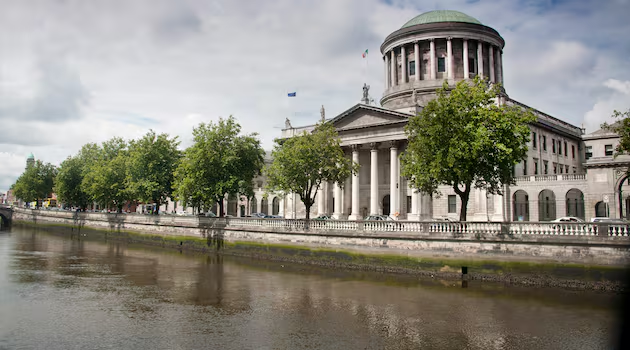
The president of the High Court has approved an application by the Health Service Executive (HSE) for termination of the pregnancy of a 15-year-old girl.
The girl, who is in international protection accommodation and was 13 weeks pregnant and close to turning 16 when the judge’s order was made late last month, expressed a wish to terminate the pregnancy.
If a termination was not provided, the girl threatened to harm herself, saying she would “cut the baby out with a knife or procure unknown pills online in an effort to abort the pregnancy herself”.
Mr Justice David Barniville found the evidence established she lacked legal and mental capacity to make a decision on termination. Her parents, who were represented by separate legal teams, did not oppose the abortion order but said, for religious and/or cultural reasons, they could not consent to it.
The judge, taking into account the child rights amendment to the Constitution, made the termination order.
The HSE made its application in private before the High Court on October 21st. A full hearing took place on October 29th and the judge’s decision, delivered on that date, was published this week.
The girl presented to HSE obstetrics on October 6th following a positive home pregnancy test. On October 9th, her pregnancy, then at more than 12 weeks, was confirmed.
A joint psychiatric assessment reported she had said she would self-harm if she had to maintain the pregnancy, indicating she intended to stab herself with a knife in the stomach “to cut the baby out myself”.
She had said she would “do whatever I have to do and get rid of it … I’ll buy abortion pills online and take 20 per day, whatever I need to do”. Asked if she intended suicide, she replied: “I don’t care … I will not have this baby.”
She said she never had suicidal ideation before and, if she was not pregnant, would feel “happier than ever”. She had career plans and achieved high results in her recent Junior Cert.
Dr M, a consultant child psychiatrist, concluded she had “somewhat poor” insight and judgment and, in his view, lacked capacity, in terms of her age and mental capacity, to decide about termination.
However, the doctor said, it was very clear it was her “fixed and consistent” view that she wished to have a termination. The court accepted that evidence, which was uncontested, the judge said.
Dr M also considered there was a risk of serious harm to the girl’s life, the foetus was not currently viable, and a termination may be carried out to avert the risk of serious harm. A similar view on those matters was expressed by Dr C, a consultant obstetrician.
The girl’s court-appointed advocate supported the HSE application on the basis it represented the “clear and unambiguous” desire of the girl and was in her best welfare interests at this time. The Child and Family Agency also supported the application as being in the girl’s best interests.
The girl’s father neither consented nor objected to the order, for reasons including that in his culture abortion is not allowed but he was anxious to support his daughter.
His position was “very understandable”, as was that of the girl’s mother, the judge said. She described termination as “a deeply personal thing for a woman to decide” and said it was a matter for her daughter to determine. She would support her daughter and not oppose termination but could not, due to her own cultural and religious beliefs, provide consent to the medical procedure that would end the life of another as she saw it.
The judge found the requirements of section 9.1 of the Health (Termination of Pregnancy) 2018 Act were met. That permits termination where two medical practitioners are of reasonable opinion there is a risk to the life, or of serious harm to the health, of the pregnant woman; the foetus has not reached viability; and it is appropriate to carry out the termination of pregnancy to avert the risk.
As the girl is a minor, the court had to address the issue of consent to the treatment where the evidence was she lacked capacity to decide. Having regard to the very serious risks the doctors identified and the views of the advocate and the Child and Family Agency, he held termination was in her best interests.
The parents said they were not in a position to provide their consent, he said that was sufficient to find a parental failure likely to lead to prejudicial effects for the girl such that the State could intervene by proportionate means.
He was not making any finding in any other respect in relation to the girl’s parents, he stressed.




